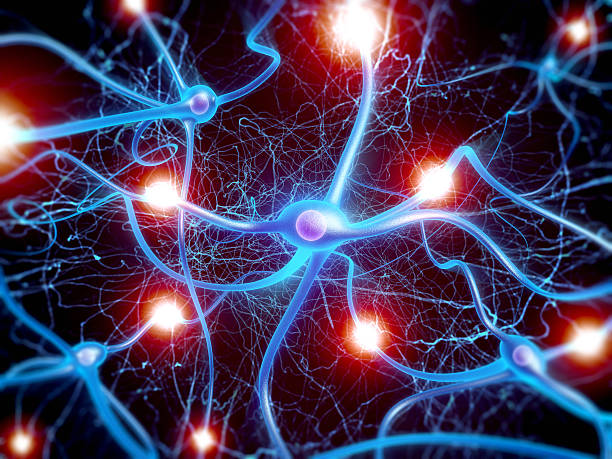What is Disaster Mental Health?
Disaster mental health refers to mental health services for victims, first responders, and medical personnel who experience disaster. Disaster can include a wide variety of sudden, catastrophic events that cause loss of life, such as an earthquake, a terrorist attack, or even a global pandemic.
What Conditions Are Associated With Disaster Mental Health?
Traumatic experiences during disaster can produce a variety of mental health conditions that last long after danger ends. Some of these may be related to neurological changes produced by long periods of “fight or flight.”
One of the most prominent conditions associated with disaster mental health is PTSD (Post-Traumatic Stress Disorder.) Once thought common only in military conflict, it is now understood PTSD can come from any intense experience of danger that provokes feelings of helplessness.

PTSD can have symptoms including flashbacks, memory loss (especially in relation to the traumatic event), anxiety, depression, difficulty sleeping, nightmares, and angry outbursts. The vast majority of PTSD sufferers are nonviolent and pose no threat to others.
Anxiety and depression are typical complications from any disaster. Both adults and children may feel guilty, believing they “should have done more.” Emotional flashbacks in which the sufferer re-experiences negative emotions without “seeing” or “hearing” the event, are common.
Disaster Mental Health Recovery and Lifestyle Changes
Disaster mental health treatment often includes a combination of medication and therapy. Medication focuses on reducing symptoms of anxiety and depression. Therapy can be in a group or one-on-one setting. Its primary goal is to help a sufferer process trauma.
One of the biggest challenges in disaster mental health care is the difficulty sufferers face verbalizing their experiences. Processing the emotions that come from trauma help reduce their effect on a person’s life. Novel approaches such as art therapy help many individuals express trauma in a way that helps. Techniques like journaling may also be used.
Disaster mental health patients need to identify psychological triggers in their environment. These triggers can cause them to re-experience the emotions or sensations of a past trauma. At first, recognizing and avoiding such triggers is advisable. With professional help, it’s possible to overcome the negative associations of triggers in a controlled environment.
Disaster Mental Health Research

Disaster mental health has been a prominent concern in psychology for decades. As researchers have uncovered effects of trauma on the brain, it has become clear profound neurological changes can occur during disaster even if one is not physically harmed.
Disaster mental health research focuses on two main areas: Reduction and treatment. Reduction aims to equip at-risk populations, like police and EMTs, with coping strategies to manage trauma. Treatment focuses on the neurobiology of trauma, creating better clinical resources for disaster mental health.
Why is Further Disaster Mental Health Research Necessary?
Millions of people all around the world are affected by mental health issues arising from disaster. The lessons of disaster mental health apply to everything from the COVID-19 outbreak to individual experiences of sexual assault or other criminal violence. With that in mind, all disaster mental health research has potential to help a broad spectrum of the population.
Disaster Mental Health Clinical Trials
This list contains all disaster mental health clinical trials on record at ClinicalTrials.gov. To feature a clinical trial on our site, contact us.
- Online Learning Module to Advance Research Related to People With Disabilitieson January 2, 2026 at 5:00 am
Conditions: Developmental Disability; Intellectual Disability; Disability Interventions: Other: eLearning module; Other: Control Sponsors: Albert Einstein College of Medicine; National Center for Advancing Translational Sciences (NCATS) Recruiting
- Comparative Analysis of Mulligan and Maitland Mobilizations Techniques in Adhesive Capsulitison January 2, 2026 at 5:00 am
Conditions: Adhesive Capsulitis of Shoulder Interventions: Other: Maitland Mobilization; Other: Mulligan Mobilization Sponsors: Riphah International University Recruiting
- Peer Counselling to Reduce Psychological Distress and Exposure to Violence Among Sexual and Gender Minoritieson January 2, 2026 at 5:00 am
Conditions: Mental Health; Psychological Distress; Secondary Violence Reduction; Discrimination; Sexual and Gender Minorities; Minority Groups; Homosexuality; Domestic Violence; Gender Based Violence Interventions: Behavioral: SAATHI intervention (Augmented PM+ counseling); Behavioral: SAATHI intervention with Peer-Led Group Meetings Sponsors: Public Health and Environment Research Centre (PERC), Nepal; Department of Global Public Health and Primary Care, University of Bergen; Blue Diamond Society, Nepal; Sahayatri Samaj, Parsa; Friends Hetauda, Makwanpur; Pahichan Nepal, Sarlahi; Manab Sachet Samaj, Chitwan; Sunaulo Bihani Samaj, Dhanusha; CruiseAIDS Nepal, Kathmandu; Parichaya Samaj, Lalitpur Recruiting
- Characterization of Nociception Phenotype in Individuals With Intellectual Disabilityon January 2, 2026 at 5:00 am
Conditions: Intellectual Disability Interventions: Device: TSA2 Thermosensory Stimulator Sponsors: National Institutes of Health Clinical Center (CC) Recruiting
- Screening for Social Determinants of Health (SDOH) and Cognitive Function in Individuals With History of Strokeon January 2, 2026 at 5:00 am
Conditions: Stroke; Brain Disease; Vascular Diseases; Cerebrovascular Disorder Sponsors: National Institute of Neurological Disorders and Stroke (NINDS) Recruiting
- Investigation of the Effects of Interlaminar Epidural Steroid Injection on Upper Extremity Proprioception in Patients With Chronic Cervical Radiculopathyon January 2, 2026 at 5:00 am
Conditions: Cervical Radiculopathy; Cervical Radicular Pain; Proprioception Interventions: Procedure: Interlaminar Epidural Steroid Injection (ILESI) Sponsors: Marmara University Recruiting
- Study to Assess the Safety and Efficacy of Sovateltide in Patients With Acute Cerebral Ischemic Strokeon December 31, 2025 at 5:00 am
Conditions: Acute Cerebral Ischemia Interventions: Drug: Sovateltide; Other: Normal Saline Sponsors: Pharmazz, Inc. Recruiting
- Clinical and Basic Investigations Into Known and Suspected Congenital Disorders of Glycosylationon December 31, 2025 at 5:00 am
Conditions: Congenital Disorders of Glycosylation Sponsors: National Human Genome Research Institute (NHGRI) Recruiting
- Studying Childhood-onset Behavioral, Psychiatric, and Developmental Disorderson December 31, 2025 at 5:00 am
Conditions: Neuropsychiatric Disorder; Neurological Disorder; Neurodevelopmental Disorder; Sleep Sponsors: National Institute of Mental Health (NIMH) Recruiting
- EMMVIES : Walking Training at Home in VIrtual Reality for Children With Chronic Illnesses Impacting Physical Healthon December 31, 2025 at 5:00 am
Conditions: Home-based Programs; EzyGain; AMY Treadmill; Cerebral Palsy; Neuromuscular Diseases (NMD); Obesity; Virtual Reality Interventions: Other: EMMVIES program Sponsors: University Hospital, Angers Recruiting
- A Phase 1/2/3 Study of TSHA-102 Gene Therapy in Females With Rett Syndrome (REVEAL Pivotal Study)on December 30, 2025 at 5:00 am
Conditions: Rett Syndrome Interventions: Genetic: TSHA-102 Sponsors: Taysha Gene Therapies, Inc. Recruiting
- Opioid/Benzodiazepine Polydrug Abuseon December 30, 2025 at 5:00 am
Conditions: Polysubstance Abuse Interventions: Other: Multi-domain assessment battery Sponsors: Wayne State University Recruiting
Conclusion
With more people experiencing disaster, stigma around seeking disaster mental health treatment is beginning to fade. Disaster mental health clinical resources will depend on active clinical trials that uncover further information about the brain’s trauma response. Further medical research may help millions of people reclaim their sense of stability.
Sources
- https://www.phe.gov/Preparedness/planning/abc/Pages/disaster-behavioral.aspx
- https://www.medicalnewstoday.com/articles/325578
- https://www.rainn.org/articles/flashbacks
- https://emergency.cdc.gov/coping/index.asp
- https://www.mhanational.org/coping-disaster
- https://www.webmd.com/mental-health/what-are-treatments-for-posttraumatic-stress-disorder
- https://www.ptsd.va.gov/understand_tx/tx_basics.asp
